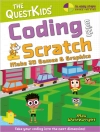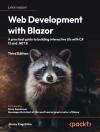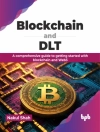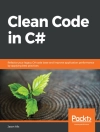PRIMA 2008 was the 11th in a series of conferences gathering researchers – voted to developing intelligent agents and multi-agent technologies from Asia and the Paci?c regions. From its ?rst incarnation over a decade ago, PRIMA has emerged as a signi?cant international forum, facilitating the exchange and dissemination of innovative research from around the globe. PRIMA 2008 was held in Vietnam, a tribute to this country’s emerging s- enti?c vitality and importance as a developing innovation center. The Program Committee received 56 submissions from 20 countries. Many of these papers are the work of Ph D or Masters students from Asian countries including – rea, Japan, Indonesia, Malaysia, Iran, India, and Vietnam. In accordance with the rules, each submission was carefully peer-reviewed by three Program C- mittee referees. Only 19 submissions were accepted as regular papers, with a competitive rate of 33%. Additionally, the Program Committee decided to accept 22 short papers mainly written by graduate students, allowing our young colleagues an opp- tunity to present their work and new perspectives. These fresh perspectives enhanced our experienced of the conference and complemented the high quality of the professional papers submitted.
İçerik tablosu
Keynote Speech: A Review of the Ontological Status, Computational Foundations and Methodological Processes of Agent-Based Modeling and Simulation Approaches: Open Challenges and Research Perspectives.- Keynote Speech: Computational Collective Intelligence and Knowledge Inconsistency in Multi-agent Environments.- Keynote Speech: Agent Oriented Software Engineering: Why and How.- Coordinating Agents Plans in Multi-Agent Systems Using Colored Petri Nets.- Design of an Internet-Based Advisory System: A Multi-agent Approach.- Towards Virtual Epidemiology: An Agent-Based Approach to the Modeling of H5N1 Propagation and Persistence in North-Vietnam.- Measurement of Underlying Cooperation in Multiagent Reinforcement Learning.- Reo Connectors as Coordination Artifacts in 2APL Systems.- A Verification Framework for Normative Multi-Agent Systems.- Social Viewpoints for Arguing about Coalitions.- Changing Institutional Goals and Beliefs of Autonomous Agents.- Reasoning about Constitutive Norms, Counts-As Conditionals, Institutions, Deadlines and Violations.- When to Use a Multi-Agent System?.- Multiagent Incremental Learning in Networks.- UML-F in the Design of an Agent-Oriented Software Framework.- Interactive Learning of Expert Criteria for Rescue Simulations.- Modularity in Agent Programming Languages.- On the Pheromone Update Rules of Ant Colony Optimization Approaches for the Job Shop Scheduling Problem.- Preliminary Result on Secure Protocols for Multiple Issue Negotiation Problems.- Performance Analysis about Parallel Greedy Approximation on Combinatorial Auctions.- Online Market Coordination.- Towards an Evaluation Framework for MAS Software Engineering.- From Obligations to Organizational Structures in Multi-Agent Systems.- Addressing the Brittleness of Agent Interaction.- Dividing Agents on the Grid for Large Scale Simulation.- An Interest Rate Adjusting Method with Bayesian Estimation in Social Lending.- A Temporal Logic for Stochastic Multi-Agent Systems.- Applying the Logic of Multiple-Valued Argumentation to Social Web: SNS and Wikipedia.- Simulation of Halal Food Supply Chain with Certification System: A Multi-Agent System Approach.- A Novel Approach for Conflict Resolution in Context-Awareness Using Semantic Unification of Multi-Cognition.- Improving Trade-Offs in Bilateral Negotiations under Complete and Incomplete Information Settings.- PAMS – A New Collaborative Framework for Agent-Based Simulation of Complex Systems.- Methodological Steps and Issues When Deriving Individual Based-Models from Equation-Based Models: A Case Study in Population Dynamics.- Abstraction of Agent Cooperation in Agent Oriented Programming Language.- Knowledge Assessment: A Modal Logic Approach.- The Design of a Self-locating Automatic-Driving Robot.- Settling on the Group’s Goals: An n-Person Argumentation Game Approach.- Revenue Maximising Adaptive Auctioneer Agent.- Managing Collaboration Using Agent Based Simulation.- Using Agent-Based Simulation of Human Behavior to Reduce Evacuation Time.- Participatory Simulation Platform Using Network Games.- A Multiagent-System Framework for Hierarchical Control and Monitoring of Complex Process Control Systems.- Agent Reasoning with Semantic Web in Web Blogs.- Design of a Multiagent System over Mobile Devices for the Planning of Touristic Travels.











